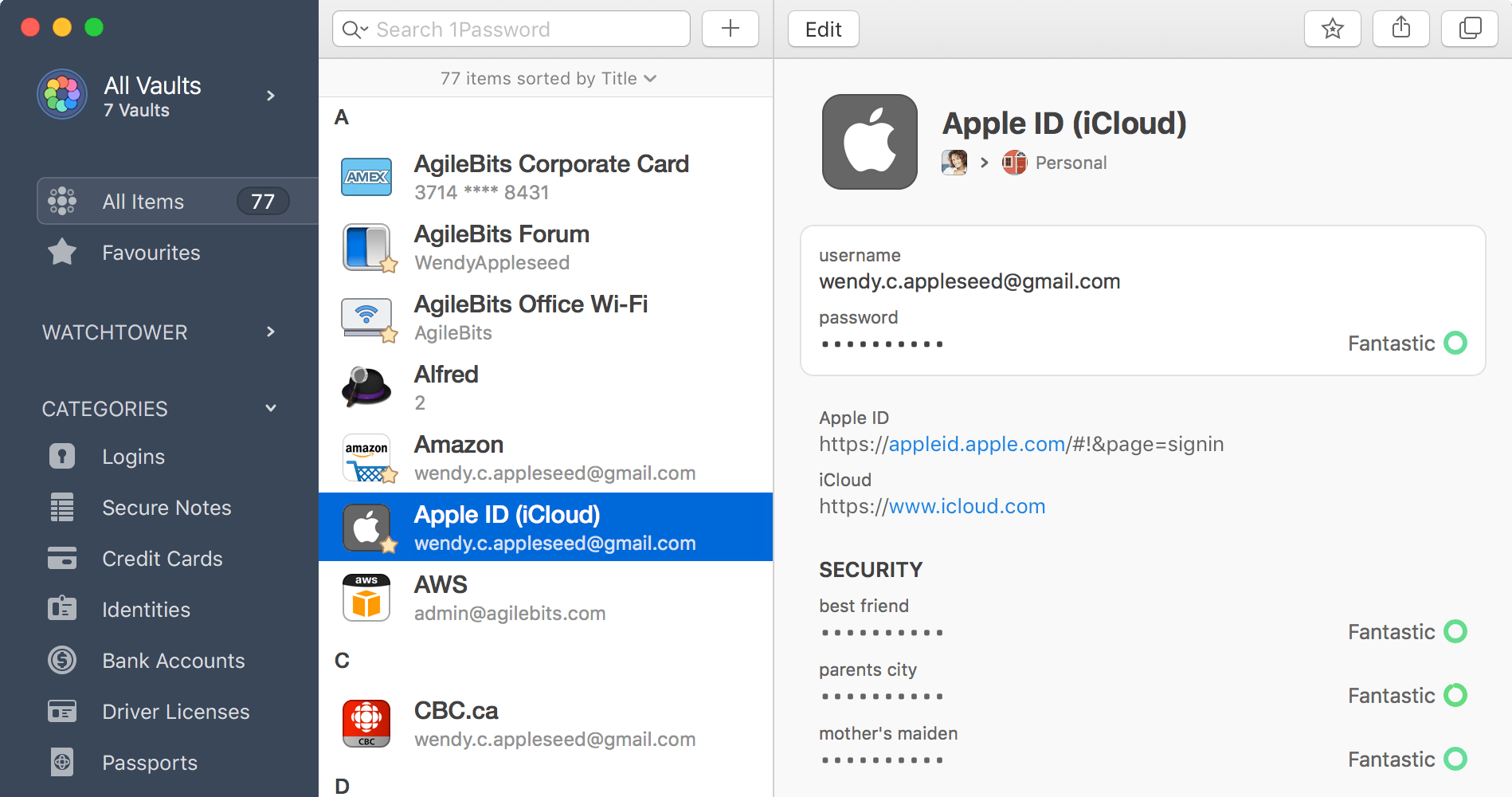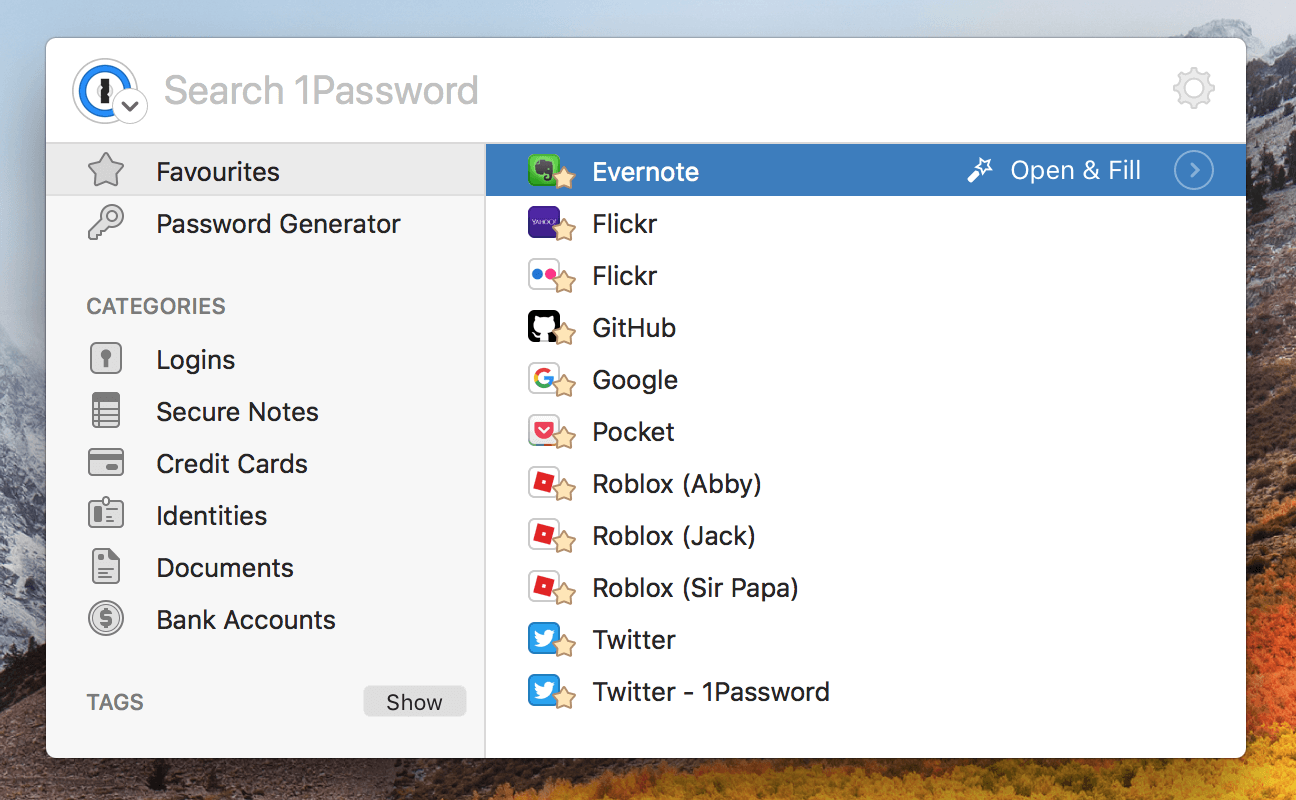To speed up the process, 1Password also displays a QR code inside your account on the web which you can use to log in on the apps for Android and iOS. While dealing with the mobile apps, you might. It’s a bad practice to use one password for all services and accounts you own. If one website gets compromised which reveals your password, you need to change all passwords across all websites and services. By using auto-generated passwords you prevent. After you install the 1Password apps, you can start using 1Password in your browser to automatically save and fill passwords on all the sites you visit on the web. But the most important thing to do is to use 1Password to change your passwords and make them stronger. Now that you have everything set up, you can get started on that now!
Using 1Password at work. Posted by 7 months ago. Using 1Password at work. Hi all, I am thinking of using 1Passsword to store my work logins. I have a personal account and created a new value for work. I'm just thinking of the possibilities of not having my info private. Let's say my employer puts a key logger on my computer.
Researchers have uncovered a surprising security weakness in password managers – several popular products appear to do a weak job at scrubbing passwords from memory once they are no longer being used.
An analysis by Independent Security Evaluators (ISE) uncovered the problem to different degrees in versions of 1Password, Dashlane, LastPass and KeePass.
The good news is that all managers successfully secured passwords when the software wasn’t running – when passwords, including the master password, were sitting in the database in an encrypted state.
However, things went downhill a bit when ISE looked at how these products secure passwords in both the locked state (running prior to entering the master password or running after logging out), and the fully unlocked state (after entering the master password).
Rather than generalise, it’s best to describe the issues for each product.
1Password4 for Windows (v4.6.2.626)
This legacy version keeps an obfuscated version of the master password in memory which isn’t scrubbed when returning to a locked state. Under certain conditions, a vulnerable cleartext version is left in memory.
1Password7 for Windows (v7.2.576)
Despite being the current version, the researchers rated it as less secure than 1Password4 because it decrypts and caches all database passwords rather one at a time. 1Password7 also fails to scrub passwords from memory, including the master password, when moving to a locked state. This compromises the effectiveness of the lock button, requiring the user to completely exit the program.


Dashlane for Windows (v6.1843.0)

Exposes only one password at a time in memory until a user updates an entry at which point the entire database is exposed in plaintext. This remains true even when the user locks the database.
KeePass Password Safe (v2.40)
Database entries are not scrubbed from memory after each is used although the master password was, thankfully, not recoverable.
LastPass for Applications (v4.1.59)
Database entries remain in memory even when the application is locked. Furthermore, when deriving the decryption key, the master password is “leaked into a string buffer” where it is not wiped, even when the application is locked (note: this version is used to manage application passwords and is distinct from the web plugin).
Clearly, if passwords – especially master passwords – are hanging around in memory when the application is locked, this raises the possibility that malware could steal this data after infecting a computer.
The counter-argument is that if malware infects your computer, pretty much everything on that system is at risk whether it’s obfuscated in memory or not. No security application can possibly guarantee to defend against this sort of threat.
The response?
Using 1password On Work Computer
Some of the affected vendors have publicly defended their products, claiming that the issues discovered by the researchers are part of complex design trade-offs.

LastPass also claimed it had cured the problems found in its product and pointed out that an attacker would still require privileged access to a user’s PC.
Is this the end for password managers?
Using 1password
In short, no. Our advice is to continue using password managers because the issues found are still heavily outweighed by the known advantages of using one and will probably be tidied up through updates anyway.
What matters is that researchers prod these products for weaknesses and that the vendors do everything they can to fix them as quickly as possible.
Using 1password On Edge
If in doubt, one idea is to shut down (i.e. close) a password manager when it’s not being used.
Using 1password On Iphone
And, of course, don’t forget to use two-factor authentication whenever you can. That way, even if someone has your password, they still can’t log in as you.
